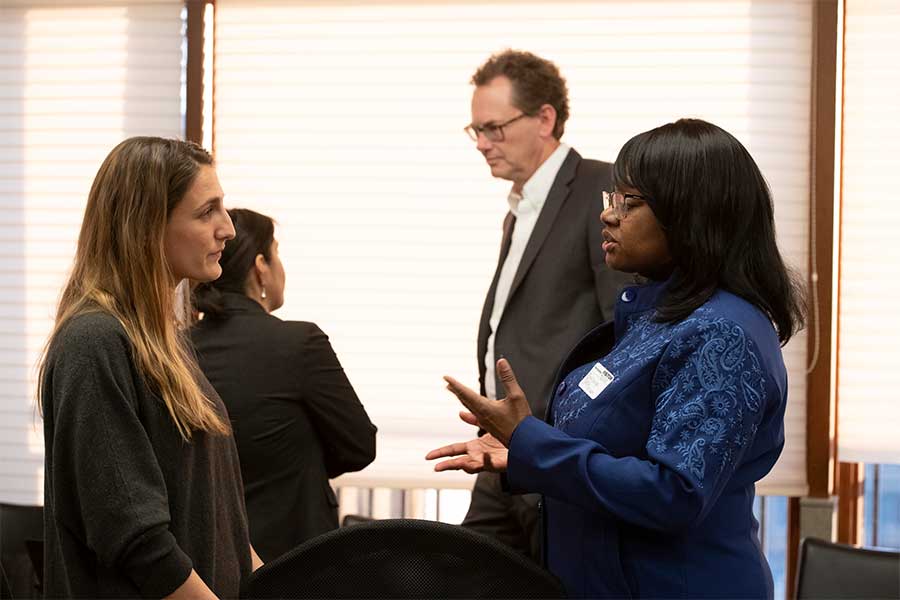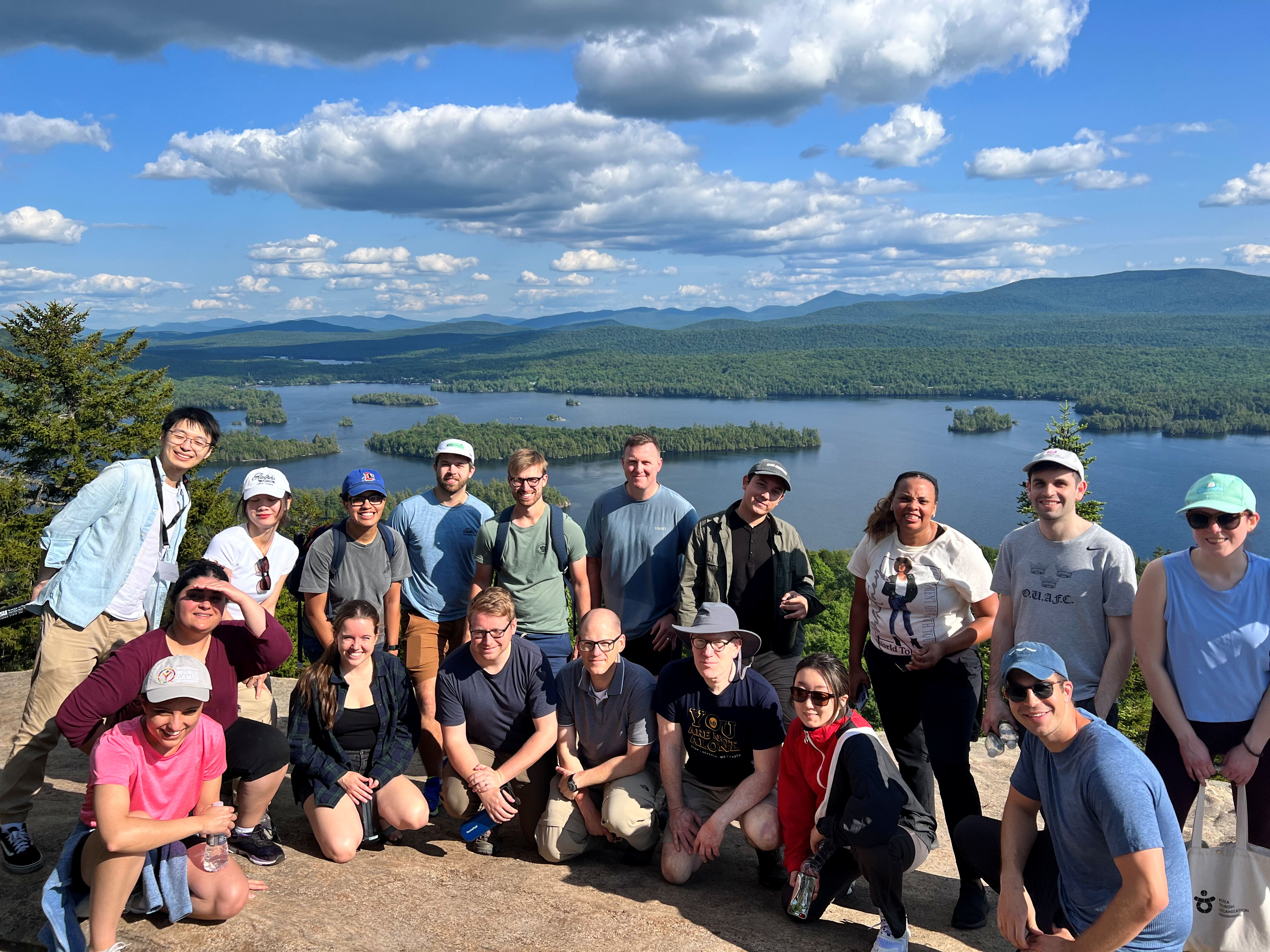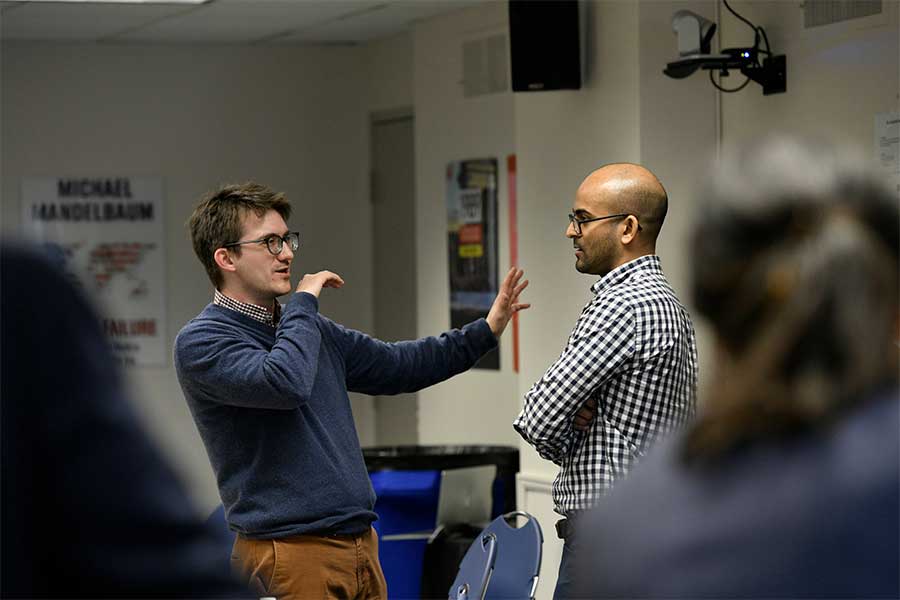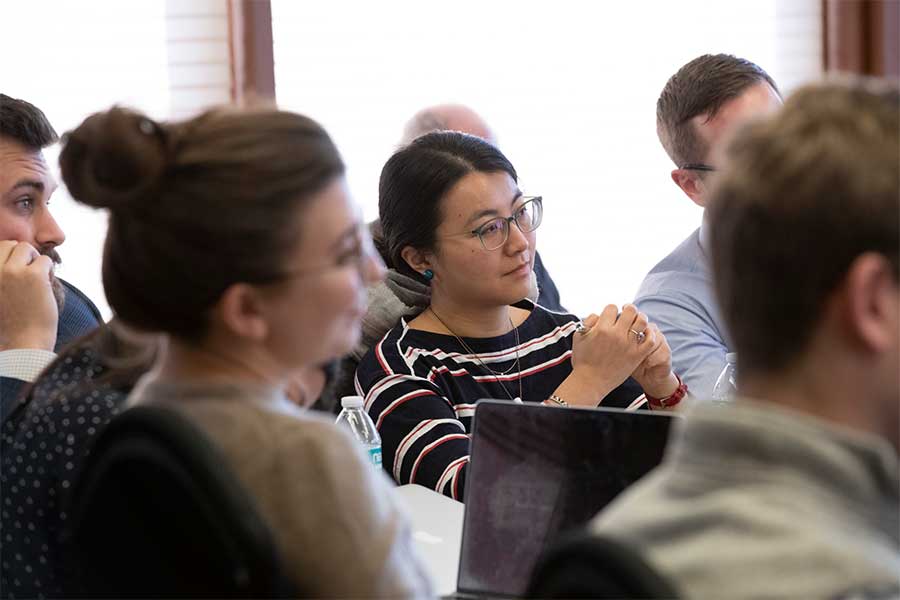International Policy Scholars Consortium and Network

The Kissinger Center is pleased to host the International Policy Scholars Consortium and Network (IPSCON), a multi-year initiative funded by the Carnegie Corporation of New York.
Application Information
Supported by the Carnegie Corporation of New York and located within SAIS’s Henry A. Kissinger Center for Global Affairs, IPSCON is dedicated to helping emerging scholars, especially PhD students, navigate between the worlds of scholarship and policy in their research, teaching, and careers. Over the course of the academic year, IPSCON participants will engage in a three-day retreat in the Adirondacks, a two-day policy workshop in Washington, DC, and a virtual seminar series during the semester that brings together students, preeminent scholars, and current and former senior government officials for wide-ranging conversations. IPSCON members will also have access to the IPSCON alumni community for networking and mentorship.
Our ideal candidates will have finished or be in the process of finishing their comprehensive exams when they take up the fellowship. We are also open to candidates who are further along, including postdoctoral fellows and junior faculty. We welcome applications from candidates from a diverse array of intellectual backgrounds including history, political science, public policy, information and data science, biology, engineering, public health, environmental studies, etc., who are interested in making their research more accessible to policymakers and/or serving in government. Preference will be given to current PhD students with a demonstrated interest in policy-relevant research on a key topic in international affairs. Applicants who are committed to promoting a sense of belonging and contributing to an equitable and inclusive learning environment for all are strongly encouraged to apply.
Application Process and Deadline
Applicants should send a copy of their CV and a 500-word essay explaining their interest in IPSCON and career objectives to [email protected] no later than February 28, 2025, at 11:59 PM ET. Candidates will be notified of the outcome of their applications by April 1, 2025.
Please email [email protected] with any questions.
Building a Network of Scholar-Practitioners
IPSCON aims to create a cohort of scholar-practitioners who understand the problems and perspectives of each world and can successfully pursue careers in both. Now in its eleventh year, the network includes more than 100 graduate students at six top universities for the study of international affairs: Duke, Johns Hopkins SAIS, MIT, Stanford University, Syracuse University, and the University of Virginia. In parallel, IPSCON supports innovative research and curriculum development to help reshape the way we teach and learn about international affairs.
I have met many excellent scholars outside of my own field, which has expanded the way I think about history and its function. I have also learned of new employment opportunities beyond academia and the federal government that interest me. Finally, and most importantly, I have a better understanding of how to frame my own research questions to make them more appealing to an audience outside of the Academy.
Alexandra Lauren Sukalo, PhD Candidate, Stanford University
The unofficial kick-off to each academic year is a three-day retreat in June to Syracuse University’s Minnowbrook Conference Center in upstate New York. The retreat focuses on strategies to make academic research policy-relevant, the use of case studies and other methods to better understand problems in history and international relations, and a dissertation workshop for junior scholars to solicit feedback from senior scholars and practitioners. These sessions challenge participants to sharpen their scholarship and consider how their work might be applied to particular policy debates. Minnowbrook also offers a host of social activities and an informal salon designed to cultivate and deepen relationships across the network. At our 2023 Minnowbrook Retreat, IPSCON scholars workshopped their dissertation projects, learned strategies for bridging the academic-policy gap and succeeding as early-career policy scholars, debated the impact of AI on international relations through an interactive exercise, and discussed contemporary issues in civil-military relations as well as what we've learned about international politics from the ongoing war in Ukraine.
During the academic year, IPSCON organizes a monthly video teleconference that considers a timely foreign policy issue through the lens of the latest academic research. Recent topics have included, “the Future of U.S.-Middle East Policy,” “Evaluating Trends in Nationalism,” and “Engagement vs. Restraint.” Each 90-minute meeting is co-facilitated by senior and junior scholars.
Anchoring the fall semester is a two-day workshop hosted by Johns Hopkins SAIS in Washington, DC. The workshop is focused on expanding junior scholars’ exposure to how foreign policy is crafted and implemented inside the Beltway. Current and former senior policymakers have offered sessions on topics ranging from U.S. grand strategy vis a vis China to the challenges of working on the foreign policy team for a presidential campaign. Typically, the workshop also includes a simulation or other participatory exercise that provides insight into the structure of the national security bureaucracy. In 2016, for example, junior scholars played the role of staffers on the National Security Council responsible for evaluating and presenting to the National Security Advisor alternative strategies to counter the Islamic State.In 2017, a highlight of the workshop was an exchange between Professor Peter Feaver of Duke University and Brian Hook, Senior Policy Advisor to the Secretary of State, and Director of the Secretary's Policy Planning Staff at the U.S. Department of State. In 2018, students participated in a historical exercise with Dr. Philip Zelikow playing the roles of key decision makers during President McKinley's decision to seize the Philippines. Our 2020 workshop gave students the opportunity to discuss strategies for governing distruptive technologies with experts in the field and to design a mock policy for US involvement in Syria.
Most recently at the 2025 workshop, participants immersed themselves in panels on contemporary issues on Taiwan and Eurasia, implications from the 2024 US election, strategy and grand strategy, and understanding strategic surprises in contemporary history.

Research and Curriculum Development
IPSCON also supports research and curriculum development focused on historically-informed statecraft and policy design. In contrast to models that focus on disciplinary or technical training, IPSCON is developing rigorous, policy-relevant curricula designed to prepare current and future practitioners for high quality work that blends cutting edge research with an understanding of the needs and exigencies of practice. The courses will be made available in formats that are flexible to accommodate a range of consumers – from graduate students in international relations who plan careers in the academy but will be teachers of future generations, to graduate students in other fields (law, business and applied sciences like engineering and health), advanced undergraduates, and current government officials and staff at multilateral or nongovernmental organizations.
Looking Forward
In the initial grant, IPSCON focused on generating content, increasing exposure, and building networks – both vertical (mentors with students) and horizontal (among young scholars and practitioners), to provide support and synergy in navigating this challenging career track. With the second grant, IPSCON aims to broaden and deepen the reach of this work by generating innovative curricula and content that can be emulated by other programs in international affairs and by bringing more young scholars into the network. Despite its growth, the focus of IPSCON remains the cultivation of a strong and enduring network of scholar-practitioners. Its success can be measured by the success of its alumni, who have secured prestigious positions in the academic and policy worlds, collaborated on publications, and utilized the network to develop joint research projects or confer on pressing policy challenges. Ultimately, the project aims to produce students who will become leaders both in and outside the academy, able to improve the quality of statecraft and better equipped to face the international challenges that lie ahead.

Getting Involved
Program Leaders:
Francis J. Gavin: Giovanni Agnelli Distinguished Professor, Director of the Henry A. Kissinger Center for Global Affairs, Johns Hopkins SAIS
James Steinberg: Dean, Johns Hopkins SAIS
Current Senior Scholars:
Alexander Bick: Associate Professor of Practice in Public Policy, University of Virginia
Hal Brands: Henry A. Kissinger Distinguished Professor, Johns Hopkins SAIS
Peter Feaver: Professor of Political Science and Public Policy and Director of the Duke Program in American Grand Strategy, Duke University
Naima Green-Riley: Assistant Professor of Politics and International Affairs, Princeton University
Rachel Myrick: Douglas and Ellen Lowey Assistant Professor of Political Science, Duke University
Lainie Rutkow: Professor of Health Policy and Management and Vice Provost for Interdisciplinary Initiatives, Johns Hopkins University
Janice Stein: Belzberg Professor of Conflict Management, University of Toronto
Brian Taylor: Professor of Political Science and Director of the Moynihan Institute of Global Affairs, Syracuse University
Jeremy Weinstein: Dean of Faculty, Harvard Kennedy School, Don K. Price Professor of Public Policy, Harvard University
Philip Zelikow: Senior Fellow, Stanford University, Hoover Institution
Former Senior Scholars:
Lee Feinstein: Dean of the Hamilton Lugar School of Global and International Studies, Indiana University Bloomington
Margaret Hermann: Professor, Syracuse University
Kathleen Hicks: Senior Vice President, Henry A. Kissinger Chair, Director, International Security Program, Center for Strategic & International Studies
Bruce Jentleson: William Preston Few Distinguished Professor of Public Policy, Duke University
Rebecca Lissner: Assistant Professor, U.S. Naval War College
Vipin Narang: Associate Professor, MIT